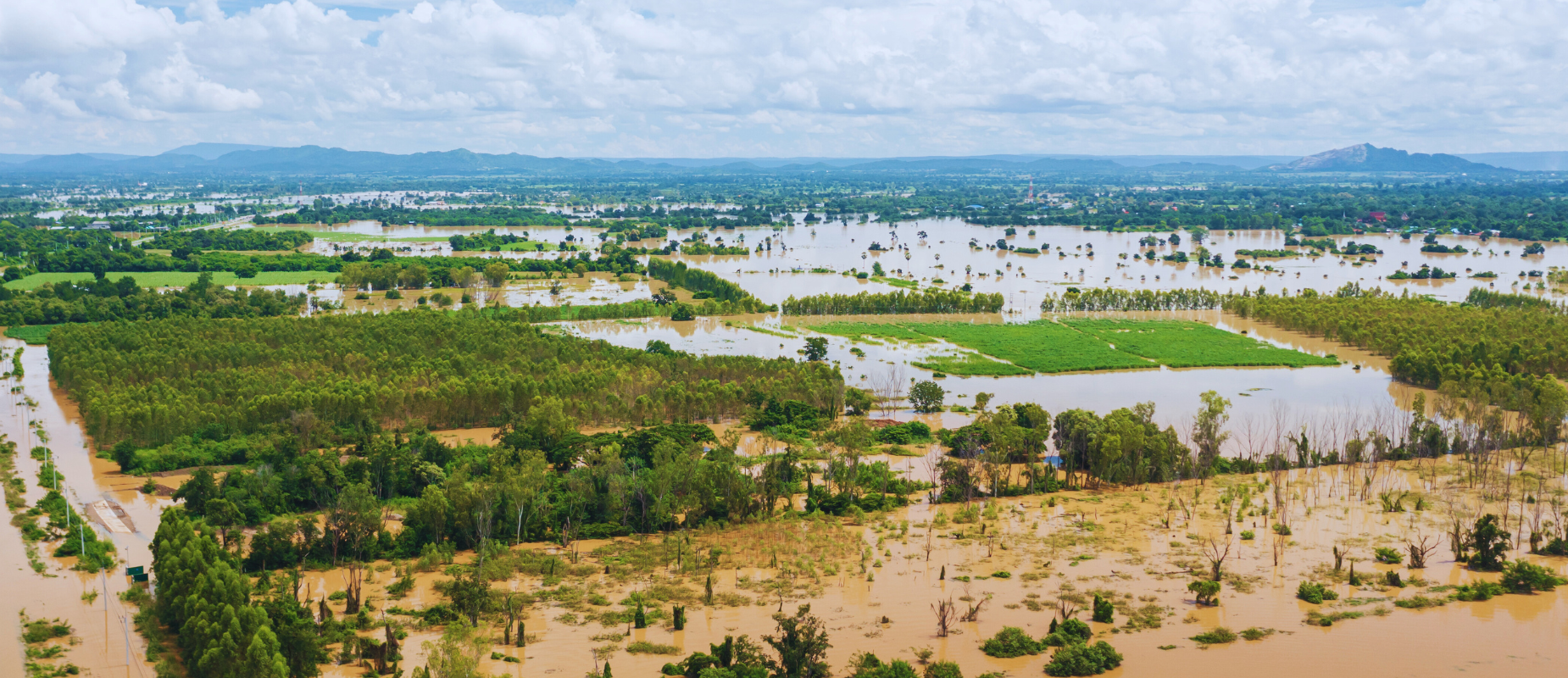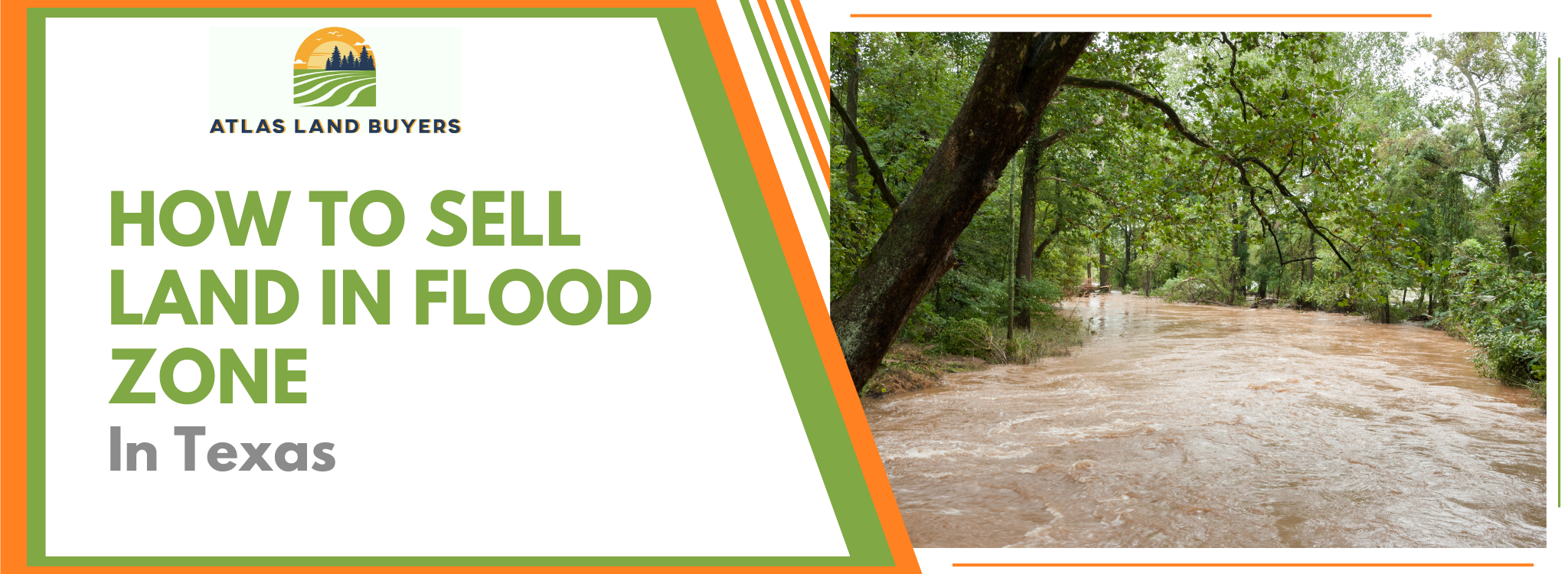
Selling Land in Texas Flood Zones: Key Considerations
What Are the Legal Requirements for Selling Flood Zone Property in Texas?
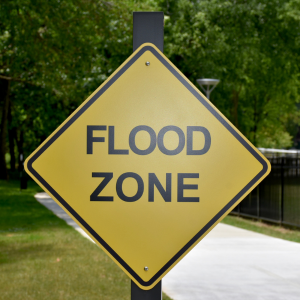
You must know the legal requirements when selling property in a Texas flood zone. Sellers must tell buyers about any known flood risks and past flood damage. These are part of Texas’s flood disclosure rules to keep everything clear and protect everyone involved. You might face legal trouble or fines if you don’t follow these rules.
First, learn about the Texas flood zone property rules. Check if your property is in a flood zone using FEMA flood maps or by asking your local county floodplain administrator. It would be best to inform buyers about Texas real estate floods, like past flooding events, and any steps you’ve taken to reduce flood risk.
How Does Flood Insurance Affect Property Sales in Texas?
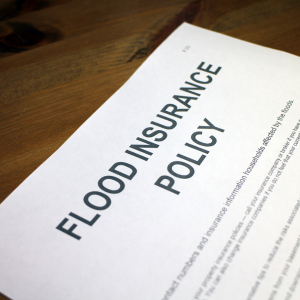
Flood insurance is really important when selling properties in areas prone to floods. Some places may require it in Texas, especially if a buyer uses a government-backed loan. Knowing flood insurance requirements is key for buyers and sellers so everything goes smoothly.
Texas insurance costs can change depending on where the property sits on the floodplain map. Sellers should give buyers good estimates of national flood insurance costs to help them understand the total ownership costs. They should also clearly explain any current insurance policies and past claims, which can help buyers make decisions.
What Strategies Can Boost Buyer Interest in Flood Zone Properties?
Selling property in a flood zone is tough, but there are ways to get buyers interested. Good communication about flood risks is important. Show potential buyers any flood prevention measures, like raised buildings or better drainage systems, to make them feel safer.
Offering incentives, like paying for the first year of flood insurance or lowering the sale price to cover future flooding costs, can make your property more attractive. Plus, reaching out to specific buyers who enjoy the water’s recreational or natural benefits can help attract more interest.
These selling strategies can increase interest and lead to successful sales, even in areas with higher flood risks. Being open and honest builds trust and makes your property stand out.
Understanding Market Dynamics in Texas Flood Zones
How Do Flood Maps Influence Real Estate Decisions in Texas?
Flood maps are very important for real estate decisions in Texas. The state’s different landscapes and weather affect property conditions. Maps from the Federal Emergency Management Agency (FEMA) show areas likely to flood, helping buyers and investors make wise choices.
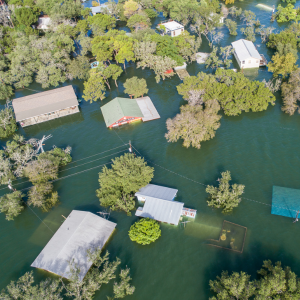
Texas floodplain maps tell people if a property is in a flood zone. This affects insurance needs and building rules. Investors must consider these and the long-term risks of buying property in flood zones.
Also, these maps can change. FEMA or local officials may update them. A property once thought safe might become part of a flood zone, impacting its market value and investment potential.
What Is the Impact of Floodplain Designation on Property Value?
When a property is marked as being in a floodplain, its value can drop. Properties in flood zones often have lower values due to flood risks. Higher insurance costs are one reason potential buyers may hesitate.
When valuing a flood zone property in Texas, experts look at past flood data, how close the property is to water, and existing flood protection efforts. All these factors help determine the land pricing in a Texas flood zone.
Improvements in floodplain management might raise the resale value of such properties. By adding flood defenses like raised buildings or better drainage, owners can boost property value and attract more buyers.
Evaluating Risks: Is It Worth Investing in Flood Zone Land?
Investing in flood zone land requires careful consideration of many factors. It’s vital to conduct a flood risk assessment, which means examining how often and severely the area floods.
In Texas, floodplain development follows strict rules to reduce risks. Investors must research local building codes, zoning laws, and flood control measures. Understanding these rules is key to a successful investment.
The decision to invest hinges on balancing potential profits against risks. Flood zone properties may be cheaper, offering good deals. But, the cost of insurance and flood protections can impact earnings. Some buyers interested in nature conservation or recreation might still find these properties valuable.
At Atlas Land Buyers, we help property owners navigate these challenges. We offer creative strategies to maximize land potential while following all legal guidelines.
Enhancing Property Appeal in Flood Zones
What Are Practical Modifications to Increase Land Usability?
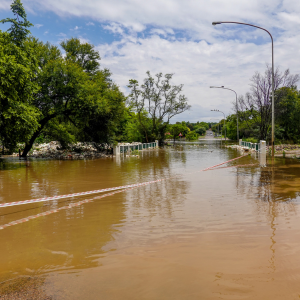
Making land in flood zones more usable involves smart changes focusing on reducing flood risks. Here are some ways property owners can improve their land:
- Elevation: Raise buildings or structures above expected flood levels to prevent damage.
- Drainage Improvement: Install good drainage systems, such as swales or basins, to handle extra water and reduce the chances of flooding.
- Permeable Surfaces: Use materials for driveways and paths that let water soak into the ground and reduce runoff.
- Landscaping: Choose plants and trees that are well-suited to floods. They help soak up water and stop soil erosion.
These changes make the property more usable and benefit the environment, supporting responsible floodplain development.
How to Highlight Environmental Benefits When Marketing Flood Zone Properties?
Focusing on environmental benefits can attract buyers when selling properties in flood zones. Here’s how to showcase these perks:
- Biodiversity: Many flood zones have rich wildlife. Buyers might enjoy protecting these natural habitats.
- Sustainability: Properties built using eco-friendly methods, such as using renewable materials, appeal to buyers who care about the planet.
- Floodplain Management: Emphasize the role of good floodplain management in keeping nature balanced. This can add long-term value to the property.
By highlighting these environmental benefits, sellers can draw in buyers who value sustainable living.
What Role Does Financial Incentive Play in Selling Flood Zone Land?
Financial incentives can be key to selling flood zone land. They help deal with concerns about risks and bring in buyers by:
- Reduced Pricing: Offering lower prices can attract buyers who worry about the challenges of the location.
- Flood Zone Financing Options: Providing details on special loans or insurance for flood areas can help buyers handle financial risks.
- Risk Reduction Discounts: Offer discounts for flood prevention measures, like better drainage or building raising. This encourages buyers to invest.
These financial strategies can boost buyer confidence and make flood zone properties more appealing. For expert help, consider contacting specialists like Atlas Land Buyers, who know how to manage these unique challenges.
Navigating Regulatory Challenges in Flood Zones
How Do Zoning Laws Affect Property Sales in Flood Zones?

In Texas, zoning laws greatly impact what you can do with properties in flood zones. These rules help keep people safe by managing the risk of flooding. When buying or selling property in these areas, it’s important to know about flood zone restrictions. These rules affect how you can use the land, what types of buildings you can put up, and even how much the property is worth.
Knowing local floodplain management rules is crucial for successful property transactions. Following these rules ensures compliance with state and federal laws, which helps make the sale go smoothly. Companies like Atlas Land Buyers suggest talking to local authorities and real estate pros who know Texas real estate well to handle these challenges.
What Are the Permitting Processes for Developing Flood Zone Land in Texas?
To develop land in a flood zone, you must follow certain permitting processes to reduce flood risks. In Texas, getting a floodplain development permit includes several steps. You start by checking your property’s location on FEMA floodplain maps. This helps you determine what building and construction rules apply to your project.
Regulatory agencies ensure these processes are followed to protect safety and the environment. To build, you must get permits from local government bodies. This often means submitting detailed plans and ensuring all activities follow the rules. Developers should work with experts who understand these regulations, so everything meets Texas’s strict floodplain management policies.
Which Regulatory Agencies Oversee Flood Zone Land Transactions?
Several regulatory agencies oversee land transactions in flood zones to ensure compliance with different rules. The Federal Emergency Management Agency (FEMA) plays a key role by providing updated floodplain maps and setting guidelines for flood risk management. Their oversight helps communities prepare for floods and affects how properties are bought and sold.
Texas floodplain management authorities work with FEMA and other regulatory bodies to enforce laws affecting flood zone land transactions. Following these rules protects property investments and promotes sustainable development, benefiting the community. Buyers and sellers should know these regulations to make smart choices about flood zone properties.
Understanding Buyer Behavior in Texas Flood Zones
What Concerns Do Buyers Have About Purchasing Flood Zone Property?
Buyers often worry about flooding risks when considering buying a property in a flood zone. They are concerned about how flooding might affect their finances, including the need for insurance and other ongoing costs. Buyers want clear information on the property’s flood history and any disclosures that could impact their decision. Understanding these concerns is important for addressing what might make buyers hesitant.
How to Effectively Communicate Flood Risk to Potential Buyers?

Real estate professionals should communicate flood risk well by giving clear and honest information to buyers. They need to know how to use floodplain maps and be ready to share this information. Being open about flood risk helps build trust and lets buyers make informed choices. Talking about mitigation strategies, like elevation certificates or flood-resistant buildings, can show how risks are managed. Sharing this knowledge helps buyers feel more confident in their decisions.
What Financing Options Are Available for Buying Flood Zone Land?
Buying land in a flood zone means looking into different financing options. Some lenders offer special mortgages for high-risk areas, considering the unique insurance needs and costs. Buyers should look for flexible lenders with deals that include flood insurance. Educating buyers about these financing options can help them manage the financial risks of investing in flood zone properties.
This information applies to Texas and its cities like Dallas, Fort Worth, Houston, and more. For help or questions, call us at (469) 564-8540. You can also visit our website at Atlas Land Buyers for more details.
FAQs:
What are the legal considerations when selling land in a Texas flood zone?
You must know about local zoning laws and floodplain rules when selling land in a Texas flood zone. You must also tell buyers about past floods as part of Texas’s disclosure rules. A real estate professional with flood zone experience can help you handle these details.
How can I assess the value of my property in a flood zone?
To determine your property’s worth, consider its flood zone status and ways to lower flood risk. Hire an appraiser who is knowledgeable about flood zones for a realistic market analysis. Consider things like floodway management and how environmental effects impact value.
What steps should I take to prepare my flood zone land for sale?
Get your land ready by learning local zoning rules and ensuring all permits are ready. Consider improving or modifying the land to make it less likely to flood. Make a checklist that includes flood safety measures to attract buyers and make the process easier.
How do I communicate flood risk to potential buyers?
Talk openly about flood risks. Share information about flood zone incentives, past flood events, and insurance options. Being transparent helps buyers understand what they’re getting into and builds trust.
Are there specific marketing strategies for selling flood zone land in Texas?
Yes, there are special marketing strategies you can use. Emphasize any flood safety efforts you’ve made, provide advice on easements, and address community concerns about flooding. Highlight your land as a unique investment opportunity.
What role does a real estate license play in selling flood zone properties?
Real estate professionals who are licensed help guide you and connect you with buyers interested in flood zone properties. They ensure everything is legal and help manage the sales process from start to finish. Their knowledge is valuable in showing off what makes your property special.
How do zoning laws affect selling flood zone property in Texas?
Zoning laws decide how you can sell land in a flood zone. They set limits based on water conditions. Knowing these laws helps you market your property right and clearly explain its potential to buyers.
What benefits might a cash offer bring when selling flood zone land?
Taking a cash offer can speed up the sale, giving you money quickly without dealing with banks. Cash deals usually have fewer conditions and make for a smoother sale, which is helpful with flood zone properties.
Key Insights
- Successfully selling land in flood zones in Texas means knowing specific rules and restrictions. Learn about Texas floodplain laws and zoning rules to stay legal.
- Think about ways to manage flood risks and improve the property to make it more appealing. Highlight changes like flood risk reduction and better water table management.
- Find out how much the property is worth with a flood zone property valuation. A detailed flood zone market analysis can help set a fair price.
- In your disclosure, discuss flood insurance costs and private options. Being open and describing both risks and costs builds trust with potential buyers.
- Know the legal side of selling flood-prone land. Ensure all floodplain rules are followed and inform buyers about their homework needs.
- Boost market appeal with smart marketing and highlight flood zone incentives. Show off unique features and use realtors who know flood zones well.
- Safeguard buyers by doing thorough inspections and providing flood event history. Share any important information about Texas land sales to avoid future problems.
- Address community worries and talk to local homeowners. Discuss the impacts of flooded basements and home improvements to ease concerns.
- Have backup plans for tough sales. Stay patient and keep informed about environmental impacts and Texas flood history to make good choices.
- Offer practical solutions for investing in this kind of real estate. Highlight resale challenges and creative uses to tackle the complexities of flood zone properties.
See More on How to Sell Your Texas Property

